
Sometime in the late 20th century, the Athenian ideal of amateur athletics in big-time college sports died a noisy and brutal death. But somehow -- and cruelly, when it comes to the welfare of those that matter most, the student-athletes themselves -- the myth endures.
It's high time that we paid the very young people who are earning billions of dollars for others. But much more significantly, it's high time that we provided each of these athletes -- particularly the 99.9 percent of them who will never gasp even a whiff of professional sports life -- an appropriate education that will adequately prepare them for the 21st century workforce.
===
As
I elaborated a few weeks ago, the Big Blue Nation's iconic hoops squad is an epic generator of profit for the university and the Commonwealth. Indeed, it seems as if the only interested parties not making bank in this transaction are the players themselves. That’s because nearly 30 years since the Olympics abandoned the myth of the world-class amateur athlete, American college basketball and football remain the globe’s only billion dollar industries that don’t pay their workers.
Now, I'm not concerned about Coach Cal's charges. Many of them will emerge soon in the NBA as their own global financial centers; the others will always carry the special, privileged status of a Rupp alumna: We coddle our cagers long after they hang up their high tops. (And sometimes, we place them a little too high on the proverbial pedestal, as my former State Capitol next door neighbor, Richie Farmer, can attest from his West Virginia
prison cell.)
But there are thousands of college athletes who exemplify the scourge of income inequality: The 1% (NCAA, elite coaches, broadcast networks, and advertisers) are acquiring obscene wealth at the expense of the 99% (the student athletes) who don’t earn a dime. Even under the NCAA’s
rosiest recent projections, more than a third of college basketball players don’t graduate; many that do fail to develop any meaningful job skills, or even
middle school level reading skills; and all must tread warily on campus for fear of sanctions by the NCAA’s
Rube Goldberg rules that preserve and perpetuate the fantasy of the scholar-athlete.
Ranting about pay for play in college athletics has been a staple of talk radio for decades. Finally, the NCAA
recently announced a slight bending in their own moral arc of justice, voting to give the five richest college conferences and their 65 members schools more autonomy when it comes to compensating their students. But this incremental reform might simply reveal itself as a
Trojan Horse, blocking any real substantive change that would otherwise be brought through the court system. And this
weekend's revelation that the battle to block athletic pay is being aided by Baylor University President Ken Starr -- yes, the
same guy who successfully paralyzed national policy to explore incidents of consensual oral sex -- indicates that progress likely will remain agonizingly slow.
Now, admittedly, a 180-degree reverse pivot spin move into a fully-free-market-based compensation system would be a disaster. Imagine sports agents forcing rival athletic directors into bidding wars for their star clients, or Steinbrenner-wannabe boosters pooling their cash to assemble indomitable dynasties. And don’t forget: Under such a scenario, already financially-reeling schools would have to fill multi-million dollar holes in their budgets.
Instead, it is incumbent upon the NCAA to use its nascent reform process to establish proactively a pay-for-play system that their member institutions can afford; one that would provide fair and equal compensation to all scholarship athletes, or at least to those in their revenue-generating sports. And such a game plan must focus like a tight spiral on the student welfare.
Here's my modest proposal:
Pay the players a living wage. With classrooms filled by trust-funders toting daddy’s credit card, gift offers from boosters and agents must tempt lower-income athletes worse than
Chris Christie in a candy store. An hourly living wage -- the same for each player on scholarship; adjusted slightly among universities by local standards of living -- would provide athletes with some (but not too much) walking around money for the occasional restaurant jaunt or shopping spree (maybe they could finally afford their own replica jersey at the campus book store), as well as the exceptional luxury of flying their parents in for special games. And it won’t break the bank of our institutions of higher learning. Of course, schools would be burdened less if we identified supplemental funding sources such as…
It’s gotta be the shoes. While recent reforms have proscribed many of the abuses in the historically shady relationship between college coaches and shoe companies, it’s still unjust to force players to serve as unpaid jumping billboards for their product. A fair percentage of any and all endorsement deals could help underwrite an athlete compensation pool. And with the compensation of coaches and athletic directors soaring in a sour economy (
currently, 66
assistant football coaches earn more than $300,000 a year), it’s only right to require some tithing to the compensation fund. Taken together, this fund could help sweep in athletes beyond just the two major revenue-generating sports, because…
Don’t forget about the girls. Gender equity in college athletics is one of the great successes of the modern civil rights era. And even though on only rare occasions will a women’s team generate meaningful revenue (Go Lady Vols!), the spirit, if not the letter, of the Title IX laws may require colleges to pay women cagers the same as the boys. Since big-time college football is for the X-chromosome-challenged only, NCAA policymakers should choose to compensate at least one other women’s sport to provide gender balance. I suggest women's crew because...uh...my daughter rows for Haverford College. But if not, Abby will be fine because she picked her college based on the academic curriculum and her professional interests. That's not usually the case when it comes to other college athletes, and we too often fail to remember that....
It’s the education, stupid. Let’s be cognizant that the primary mission of the university is to educate and prepare its student body for the postgraduate job market. Current athletic academic standards instead often function to stifle opportunity or to encourage inappropriate shortcuts. There's no better example than the academic scandal plaguing the University of North Carolina. I argued
last week that the Tarheels deserve the death penalty for the nearly two-decade fraudulent conspiracy that steered athletes into sham classes. But the UNC example is merely the highest-profile symptom of a deeply ingrained academic disease.
The core flaw is the ludicrous and pernicious assumption that every “scholar-athlete” has the preparation, the aptitude – or even the need – to earn a four-year, liberal arts bachelor’s degree. For decades, outside of sport, policymakers have been
encouraging youth from lower income environments and underachieving high schools (a common background for many a collegiate hoopster) to enroll in two-year vocational and technical colleges, where they can be empowered with the skills they need for the modern job market.
That’s why it is incumbent on the NCAA and its member schools to direct athletes, when appropriate, to focus their academic attention on job skills and technical programs that interest them, prepare them for postgraduate life, and enable them to earn associates degrees at the university, or through an affiliated community college or vo-tech program. Similarly, while the vociferous criticism of “one and done” is overblown (It worked well for Bill Gates after all), the NBA and its players’ union should effectuate a new “two and done” system, which will enable each player to earn sufficient credit to graduate with at least an associates’ degree. And those that stay on past their two-year degrees can be enrolled in apprenticeship programs with local businesses, or compensated job training in the workplace.
A critical addition to every athlete's academic curriculum must be substantive financial education. As agonizingly portrayed in the ESPN
30 for 30 special "
Broke" -- which demonstrated how easy it is even for the richest pros, such as former Wildcat Antoine Walker, to lose everything due to naiveté, mismanagement, and trusting the wrong "friends" -- our colleges must do a much better job of empowering lower-income athletes with financial skills to manage their prospective wealth.
In the end, we should abide by the motto that former Fayette County School Superintendent Stu Silberman inculcated in every communication and system action: "It's About Kids." In our passion for sports, we too often fail to fully appreciate and protect the interests of the teenagers and young adults who provide so much enjoyment for the rest of us. It's high time that we build a system that respects, honors and truly compensates the very individuals who make college sports possible.
===
POSTSCRIPT: Now that I am a
recovering politician, I'm the first to admit that I have no ownership of the truth. One of the great things about KSR is the involvement of the Big Blue Nation in the comments section. Not only do I ask for your input below, but if you have a really good idea on this subject, please leave your name and hometown. I will be writing many more columns on student compensation, and I want to give due credit for ideas that are shared below.
 Sometime in the late 20th century, the Athenian ideal of amateur athletics in big-time college sports died a noisy and brutal death. But somehow -- and cruelly, when it comes to the welfare of those that matter most, the student-athletes themselves -- the myth endures.
It's high time that we paid the very young people who are earning billions of dollars for others. But much more significantly, it's high time that we provided each of these athletes -- particularly the 99.9 percent of them who will never gasp even a whiff of professional sports life -- an appropriate education that will adequately prepare them for the 21st century workforce.
===
As I elaborated a few weeks ago, the Big Blue Nation's iconic hoops squad is an epic generator of profit for the university and the Commonwealth. Indeed, it seems as if the only interested parties not making bank in this transaction are the players themselves. That’s because nearly 30 years since the Olympics abandoned the myth of the world-class amateur athlete, American college basketball and football remain the globe’s only billion dollar industries that don’t pay their workers.
Now, I'm not concerned about Coach Cal's charges. Many of them will emerge soon in the NBA as their own global financial centers; the others will always carry the special, privileged status of a Rupp alumna: We coddle our cagers long after they hang up their high tops. (And sometimes, we place them a little too high on the proverbial pedestal, as my former State Capitol next door neighbor, Richie Farmer, can attest from his West Virginia prison cell.)
But there are thousands of college athletes who exemplify the scourge of income inequality: The 1% (NCAA, elite coaches, broadcast networks, and advertisers) are acquiring obscene wealth at the expense of the 99% (the student athletes) who don’t earn a dime. Even under the NCAA’s rosiest recent projections, more than a third of college basketball players don’t graduate; many that do fail to develop any meaningful job skills, or even middle school level reading skills; and all must tread warily on campus for fear of sanctions by the NCAA’s Rube Goldberg rules that preserve and perpetuate the fantasy of the scholar-athlete.
Ranting about pay for play in college athletics has been a staple of talk radio for decades. Finally, the NCAA recently announced a slight bending in their own moral arc of justice, voting to give the five richest college conferences and their 65 members schools more autonomy when it comes to compensating their students. But this incremental reform might simply reveal itself as a Trojan Horse, blocking any real substantive change that would otherwise be brought through the court system. And this weekend's revelation that the battle to block athletic pay is being aided by Baylor University President Ken Starr -- yes, the same guy who successfully paralyzed national policy to explore incidents of consensual oral sex -- indicates that progress likely will remain agonizingly slow.
Now, admittedly, a 180-degree reverse pivot spin move into a fully-free-market-based compensation system would be a disaster. Imagine sports agents forcing rival athletic directors into bidding wars for their star clients, or Steinbrenner-wannabe boosters pooling their cash to assemble indomitable dynasties. And don’t forget: Under such a scenario, already financially-reeling schools would have to fill multi-million dollar holes in their budgets.
Instead, it is incumbent upon the NCAA to use its nascent reform process to establish proactively a pay-for-play system that their member institutions can afford; one that would provide fair and equal compensation to all scholarship athletes, or at least to those in their revenue-generating sports. And such a game plan must focus like a tight spiral on the student welfare.
Here's my modest proposal:
Pay the players a living wage. With classrooms filled by trust-funders toting daddy’s credit card, gift offers from boosters and agents must tempt lower-income athletes worse than Chris Christie in a candy store. An hourly living wage -- the same for each player on scholarship; adjusted slightly among universities by local standards of living -- would provide athletes with some (but not too much) walking around money for the occasional restaurant jaunt or shopping spree (maybe they could finally afford their own replica jersey at the campus book store), as well as the exceptional luxury of flying their parents in for special games. And it won’t break the bank of our institutions of higher learning. Of course, schools would be burdened less if we identified supplemental funding sources such as…
It’s gotta be the shoes. While recent reforms have proscribed many of the abuses in the historically shady relationship between college coaches and shoe companies, it’s still unjust to force players to serve as unpaid jumping billboards for their product. A fair percentage of any and all endorsement deals could help underwrite an athlete compensation pool. And with the compensation of coaches and athletic directors soaring in a sour economy (currently, 66 assistant football coaches earn more than $300,000 a year), it’s only right to require some tithing to the compensation fund. Taken together, this fund could help sweep in athletes beyond just the two major revenue-generating sports, because…
Don’t forget about the girls. Gender equity in college athletics is one of the great successes of the modern civil rights era. And even though on only rare occasions will a women’s team generate meaningful revenue (Go Lady Vols!), the spirit, if not the letter, of the Title IX laws may require colleges to pay women cagers the same as the boys. Since big-time college football is for the X-chromosome-challenged only, NCAA policymakers should choose to compensate at least one other women’s sport to provide gender balance. I suggest women's crew because...uh...my daughter rows for Haverford College. But if not, Abby will be fine because she picked her college based on the academic curriculum and her professional interests. That's not usually the case when it comes to other college athletes, and we too often fail to remember that....
It’s the education, stupid. Let’s be cognizant that the primary mission of the university is to educate and prepare its student body for the postgraduate job market. Current athletic academic standards instead often function to stifle opportunity or to encourage inappropriate shortcuts. There's no better example than the academic scandal plaguing the University of North Carolina. I argued last week that the Tarheels deserve the death penalty for the nearly two-decade fraudulent conspiracy that steered athletes into sham classes. But the UNC example is merely the highest-profile symptom of a deeply ingrained academic disease.
The core flaw is the ludicrous and pernicious assumption that every “scholar-athlete” has the preparation, the aptitude – or even the need – to earn a four-year, liberal arts bachelor’s degree. For decades, outside of sport, policymakers have been encouraging youth from lower income environments and underachieving high schools (a common background for many a collegiate hoopster) to enroll in two-year vocational and technical colleges, where they can be empowered with the skills they need for the modern job market.
That’s why it is incumbent on the NCAA and its member schools to direct athletes, when appropriate, to focus their academic attention on job skills and technical programs that interest them, prepare them for postgraduate life, and enable them to earn associates degrees at the university, or through an affiliated community college or vo-tech program. Similarly, while the vociferous criticism of “one and done” is overblown (It worked well for Bill Gates after all), the NBA and its players’ union should effectuate a new “two and done” system, which will enable each player to earn sufficient credit to graduate with at least an associates’ degree. And those that stay on past their two-year degrees can be enrolled in apprenticeship programs with local businesses, or compensated job training in the workplace.
A critical addition to every athlete's academic curriculum must be substantive financial education. As agonizingly portrayed in the ESPN 30 for 30 special "Broke" -- which demonstrated how easy it is even for the richest pros, such as former Wildcat Antoine Walker, to lose everything due to naiveté, mismanagement, and trusting the wrong "friends" -- our colleges must do a much better job of empowering lower-income athletes with financial skills to manage their prospective wealth.
In the end, we should abide by the motto that former Fayette County School Superintendent Stu Silberman inculcated in every communication and system action: "It's About Kids." In our passion for sports, we too often fail to fully appreciate and protect the interests of the teenagers and young adults who provide so much enjoyment for the rest of us. It's high time that we build a system that respects, honors and truly compensates the very individuals who make college sports possible.
===
POSTSCRIPT: Now that I am a recovering politician, I'm the first to admit that I have no ownership of the truth. One of the great things about KSR is the involvement of the Big Blue Nation in the comments section. Not only do I ask for your input below, but if you have a really good idea on this subject, please leave your name and hometown. I will be writing many more columns on student compensation, and I want to give due credit for ideas that are shared below.
Sometime in the late 20th century, the Athenian ideal of amateur athletics in big-time college sports died a noisy and brutal death. But somehow -- and cruelly, when it comes to the welfare of those that matter most, the student-athletes themselves -- the myth endures.
It's high time that we paid the very young people who are earning billions of dollars for others. But much more significantly, it's high time that we provided each of these athletes -- particularly the 99.9 percent of them who will never gasp even a whiff of professional sports life -- an appropriate education that will adequately prepare them for the 21st century workforce.
===
As I elaborated a few weeks ago, the Big Blue Nation's iconic hoops squad is an epic generator of profit for the university and the Commonwealth. Indeed, it seems as if the only interested parties not making bank in this transaction are the players themselves. That’s because nearly 30 years since the Olympics abandoned the myth of the world-class amateur athlete, American college basketball and football remain the globe’s only billion dollar industries that don’t pay their workers.
Now, I'm not concerned about Coach Cal's charges. Many of them will emerge soon in the NBA as their own global financial centers; the others will always carry the special, privileged status of a Rupp alumna: We coddle our cagers long after they hang up their high tops. (And sometimes, we place them a little too high on the proverbial pedestal, as my former State Capitol next door neighbor, Richie Farmer, can attest from his West Virginia prison cell.)
But there are thousands of college athletes who exemplify the scourge of income inequality: The 1% (NCAA, elite coaches, broadcast networks, and advertisers) are acquiring obscene wealth at the expense of the 99% (the student athletes) who don’t earn a dime. Even under the NCAA’s rosiest recent projections, more than a third of college basketball players don’t graduate; many that do fail to develop any meaningful job skills, or even middle school level reading skills; and all must tread warily on campus for fear of sanctions by the NCAA’s Rube Goldberg rules that preserve and perpetuate the fantasy of the scholar-athlete.
Ranting about pay for play in college athletics has been a staple of talk radio for decades. Finally, the NCAA recently announced a slight bending in their own moral arc of justice, voting to give the five richest college conferences and their 65 members schools more autonomy when it comes to compensating their students. But this incremental reform might simply reveal itself as a Trojan Horse, blocking any real substantive change that would otherwise be brought through the court system. And this weekend's revelation that the battle to block athletic pay is being aided by Baylor University President Ken Starr -- yes, the same guy who successfully paralyzed national policy to explore incidents of consensual oral sex -- indicates that progress likely will remain agonizingly slow.
Now, admittedly, a 180-degree reverse pivot spin move into a fully-free-market-based compensation system would be a disaster. Imagine sports agents forcing rival athletic directors into bidding wars for their star clients, or Steinbrenner-wannabe boosters pooling their cash to assemble indomitable dynasties. And don’t forget: Under such a scenario, already financially-reeling schools would have to fill multi-million dollar holes in their budgets.
Instead, it is incumbent upon the NCAA to use its nascent reform process to establish proactively a pay-for-play system that their member institutions can afford; one that would provide fair and equal compensation to all scholarship athletes, or at least to those in their revenue-generating sports. And such a game plan must focus like a tight spiral on the student welfare.
Here's my modest proposal:
Pay the players a living wage. With classrooms filled by trust-funders toting daddy’s credit card, gift offers from boosters and agents must tempt lower-income athletes worse than Chris Christie in a candy store. An hourly living wage -- the same for each player on scholarship; adjusted slightly among universities by local standards of living -- would provide athletes with some (but not too much) walking around money for the occasional restaurant jaunt or shopping spree (maybe they could finally afford their own replica jersey at the campus book store), as well as the exceptional luxury of flying their parents in for special games. And it won’t break the bank of our institutions of higher learning. Of course, schools would be burdened less if we identified supplemental funding sources such as…
It’s gotta be the shoes. While recent reforms have proscribed many of the abuses in the historically shady relationship between college coaches and shoe companies, it’s still unjust to force players to serve as unpaid jumping billboards for their product. A fair percentage of any and all endorsement deals could help underwrite an athlete compensation pool. And with the compensation of coaches and athletic directors soaring in a sour economy (currently, 66 assistant football coaches earn more than $300,000 a year), it’s only right to require some tithing to the compensation fund. Taken together, this fund could help sweep in athletes beyond just the two major revenue-generating sports, because…
Don’t forget about the girls. Gender equity in college athletics is one of the great successes of the modern civil rights era. And even though on only rare occasions will a women’s team generate meaningful revenue (Go Lady Vols!), the spirit, if not the letter, of the Title IX laws may require colleges to pay women cagers the same as the boys. Since big-time college football is for the X-chromosome-challenged only, NCAA policymakers should choose to compensate at least one other women’s sport to provide gender balance. I suggest women's crew because...uh...my daughter rows for Haverford College. But if not, Abby will be fine because she picked her college based on the academic curriculum and her professional interests. That's not usually the case when it comes to other college athletes, and we too often fail to remember that....
It’s the education, stupid. Let’s be cognizant that the primary mission of the university is to educate and prepare its student body for the postgraduate job market. Current athletic academic standards instead often function to stifle opportunity or to encourage inappropriate shortcuts. There's no better example than the academic scandal plaguing the University of North Carolina. I argued last week that the Tarheels deserve the death penalty for the nearly two-decade fraudulent conspiracy that steered athletes into sham classes. But the UNC example is merely the highest-profile symptom of a deeply ingrained academic disease.
The core flaw is the ludicrous and pernicious assumption that every “scholar-athlete” has the preparation, the aptitude – or even the need – to earn a four-year, liberal arts bachelor’s degree. For decades, outside of sport, policymakers have been encouraging youth from lower income environments and underachieving high schools (a common background for many a collegiate hoopster) to enroll in two-year vocational and technical colleges, where they can be empowered with the skills they need for the modern job market.
That’s why it is incumbent on the NCAA and its member schools to direct athletes, when appropriate, to focus their academic attention on job skills and technical programs that interest them, prepare them for postgraduate life, and enable them to earn associates degrees at the university, or through an affiliated community college or vo-tech program. Similarly, while the vociferous criticism of “one and done” is overblown (It worked well for Bill Gates after all), the NBA and its players’ union should effectuate a new “two and done” system, which will enable each player to earn sufficient credit to graduate with at least an associates’ degree. And those that stay on past their two-year degrees can be enrolled in apprenticeship programs with local businesses, or compensated job training in the workplace.
A critical addition to every athlete's academic curriculum must be substantive financial education. As agonizingly portrayed in the ESPN 30 for 30 special "Broke" -- which demonstrated how easy it is even for the richest pros, such as former Wildcat Antoine Walker, to lose everything due to naiveté, mismanagement, and trusting the wrong "friends" -- our colleges must do a much better job of empowering lower-income athletes with financial skills to manage their prospective wealth.
In the end, we should abide by the motto that former Fayette County School Superintendent Stu Silberman inculcated in every communication and system action: "It's About Kids." In our passion for sports, we too often fail to fully appreciate and protect the interests of the teenagers and young adults who provide so much enjoyment for the rest of us. It's high time that we build a system that respects, honors and truly compensates the very individuals who make college sports possible.
===
POSTSCRIPT: Now that I am a recovering politician, I'm the first to admit that I have no ownership of the truth. One of the great things about KSR is the involvement of the Big Blue Nation in the comments section. Not only do I ask for your input below, but if you have a really good idea on this subject, please leave your name and hometown. I will be writing many more columns on student compensation, and I want to give due credit for ideas that are shared below.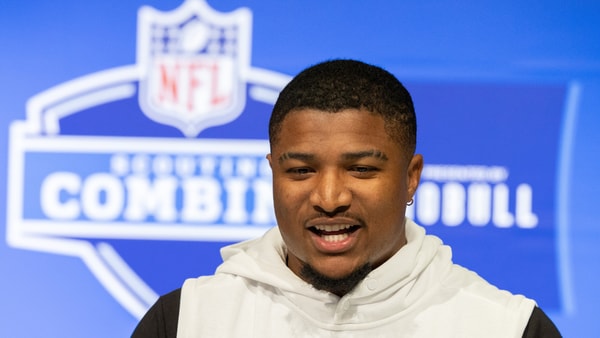
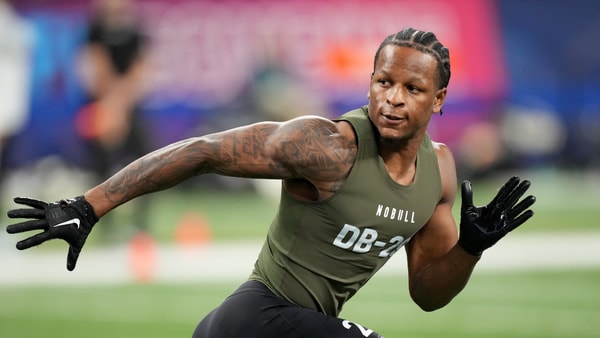
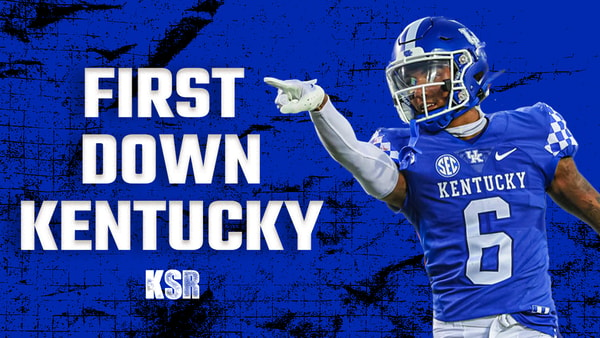
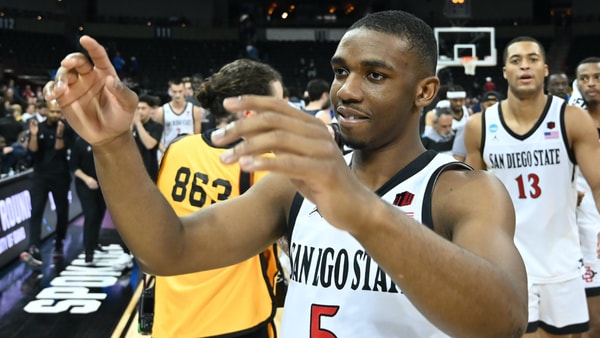
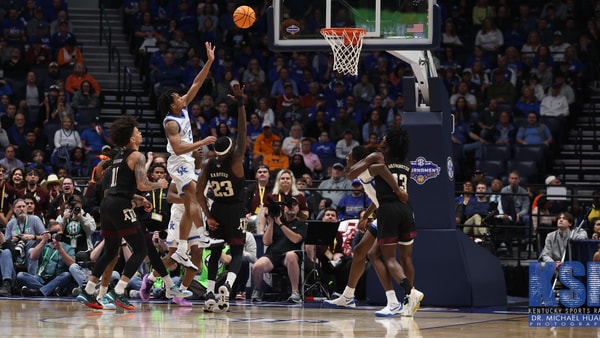
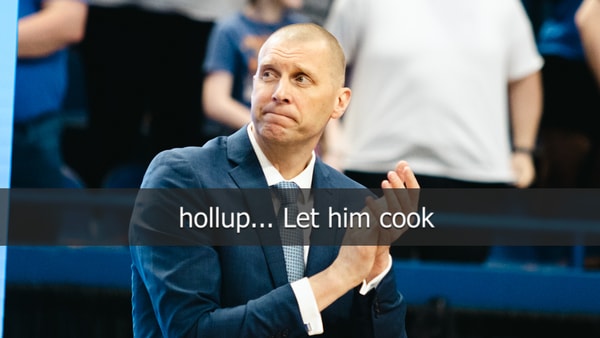
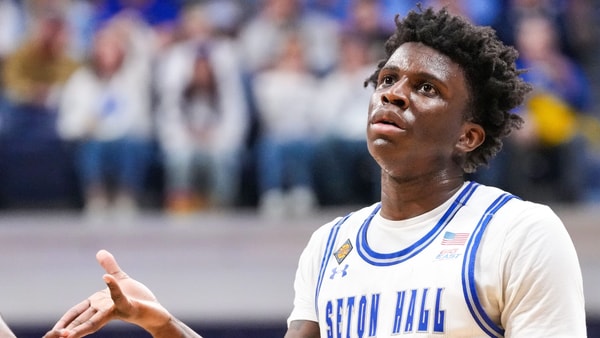
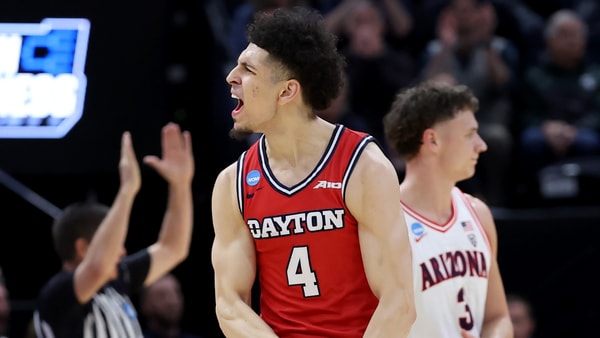
Discuss This Article
Comments have moved.
Join the conversation and talk about this article and all things Kentucky Sports in the new KSR Message Board.
KSBoard